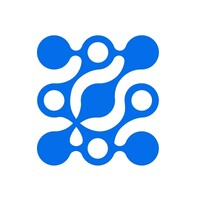Research Scholar, Technology Development & Translational Genomics (Immunogenomics Group - Biohub NY)
Chan Zuckerberg Biohub.com
Office
New York, NY (Onsite)
Full Time
The Team
CZ Biohub New York will first harness the natural capabilities of our immune cells to detect and fix abnormalities in our bodies at very early stages. It will then bioengineer immune cells to create new capabilities to detect and potentially treat events before they lead to untreatable disease.
CZ Biohub New York is part of the CZ Biohub Network, a group of nonprofit research institutes created and supported by the Chan Zuckerberg Initiative.
Our Vision
- We pursue large scientific challenges that cannot be pursued in conventional environments
- We enable individual investigators to pursue their riskiest and most innovative ideas
- The technologies developed at the CZ Biohub Network facilitate research by scientists and clinicians at our home institutions and beyond
Diversity of thought, ideas, and perspectives are at the heart of CZ Biohub Network and enable disruptive innovation and scholarly excellence. We are committed to cultivating an organization where all colleagues feel inspired and know their work makes an important contribution.
The Opportunity
The Laboratory of Immunogenomics at CZ Biohub NY studies the non-coding regulatory genome to understand and address immune dysfunction in diseases like cancer, autoimmune disorders, and aging. We focus on enhancers—non-coding, highly cell–type–specific transcriptional regulatory elements—and their role in shaping immune responses. We develop and utilize genomic technologies, including bulk and single-cell nascent RNA sequencing, genome editing, immune engineering, and CRISPR-based functional screens in patient biopsies, organoid systems, and mouse models. Through computational analysis integrating machine learning and AI, we map enhancer–gene networks and identify disease-driving elements. Our goal is to advance enhancer-guided precision genomic medicine for diseases involving immune dysfunction.
We are seeking a Research Scholar to lead an interdisciplinary research program at the intersection of immunology, cancer biology, and functional genomics, with a focus on decoding how inflammation, stress, and other lived experiences leave a lasting molecular 'memory' in the genome that shapes immune function and disease outcomes. This work aims to discover and characterize regulatory elements—especially enhancers—that maintain immune dysfunction and influence cancer progression, with the goal of developing targeted interventions to reverse these effects. This position will have the opportunity to work with cutting-edge genomic technologies, advanced disease models, and patient-derived samples to investigate these mechanisms in both normal and disease states. The position offers substantial independence in project design, while providing access to collaborative expertise across computational biology, epigenetics, immunotherapy, and clinical research. The successful candidate will play a central role in shaping a new research direction within the lab, contributing to high-impact publications, translational discoveries, and the mentoring of junior scientists.
What You'Ll Do
- Mapping regulatory elements: Define active enhancers and other regulatory regions altered by stress, inflammation, and trauma exposures using single-cell nascent RNA sequencing (scGRO-seq), ATAC-seq, and complementary epigenomic profiling approaches.
- Profiling immune states: Characterize immune cell states and transcriptional programs associated with stress- and inflammation-induced memory through single-cell and spatial transcriptomics, complemented by functional assays of cytokine production, cytotoxicity, and antigen presentation.
- Mechanisms of immune memory: Dissect enhancer–gene networks and transcriptional machinery that encode and sustain immunosuppressive programs across lymphoid, myeloid, and stromal cell populations. Employ genetically engineered and inducible inflammation models (e.g., caerulein-induced pancreatitis) to probe persistence and functional consequences of transcriptional memory.
- Modeling and functional interrogation: Develop organoid–immune cell co-culture systems to model and perturb inflammation–immune interactions. Apply CRISPR-based functional screens to uncover transcription factors, co-factors, and chromatin remodelers regulating enhancer-driven immune memory.
- Data integration and collaboration: Partner with computational teams to integrate multi-omics datasets, leverage machine learning to identify predictive biomarkers, and connect experimental insights to patient datasets for translational impact. Lead multidisciplinary collaborations, mentor junior scientists, and disseminate findings through publications, preprints, and conference presentations.
What You'Ll Bring
Essential -
- A PhD in Immunology, Molecular Biology, Cancer Biology, Genomics, or a related discipline.
- Expertise in immune cell biology, epigenomics, chromatin regulation, and transcriptional mechanisms.
- Demonstrated expertise in using in vivo models and/or primary cell systems to address mechanistic biological questions.
- Experience with one or more advanced genomic techniques (e.g., single-cell sequencing, nascent RNA profiling, CRISPR-based perturbations).
- Strong publication record showing ability to drive projects from conception to publication independently.
- Proven ability to work effectively in collaborative, multidisciplinary teams.
Nice to have -
- Experience with mouse work, especially in the gastrointestinal tract (GI).
- Expertise in enhancer biology and non-coding genome.
- Familiarity with computational tools for genomic data analysis and integration.
- Skills in working with patient-derived samples, organoid systems, or advanced imaging platforms.
- Interest in translational research and ability to connect basic discoveries to therapeutic strategies.
Compensation
The New York City, NY base pay range for a new hire in this role is $85,000.00. New hires are typically hired into the lower portion of the range, enabling employee growth in the range over time. Actual placement in range is based on job-related skills and experience, as evaluated throughout the interview process.
Benefits For The Whole You
We’re thankful to have an incredible team behind our work. To honor their commitment, we offer a wide range of benefits to support the people who make all we do possible.
- Provides a generous employer match on employee 401(k) contributions to support planning for the future.
- Paid time off to volunteer at an organization of your choice.
- Funding for select family-forming benefits.
- Relocation support for employees who need assistance moving
If you’re interested in a role but your previous experience doesn’t perfectly align with each qualification in the job description, we still encourage you to apply as you may be the perfect fit for this or another role.
#Li-Hybrid #Li-Onsite
Research Scholar, Technology Development & Translational Genomics (Immunogenomics Group - Biohub NY)
Office
New York, NY (Onsite)
Full Time
October 8, 2025
